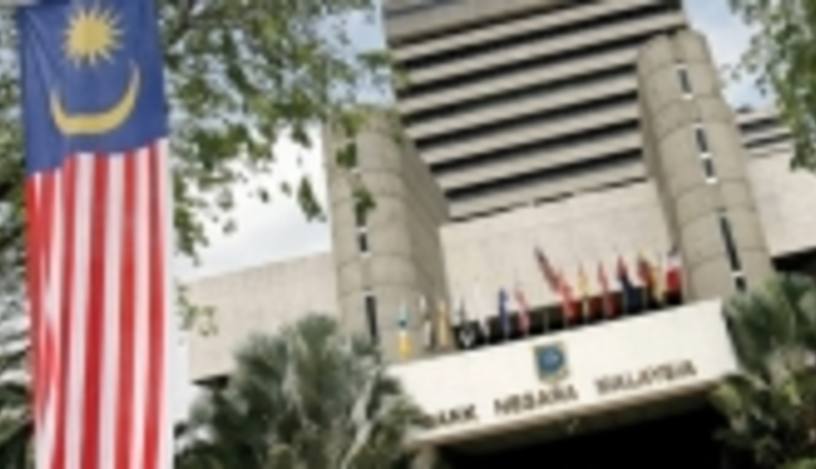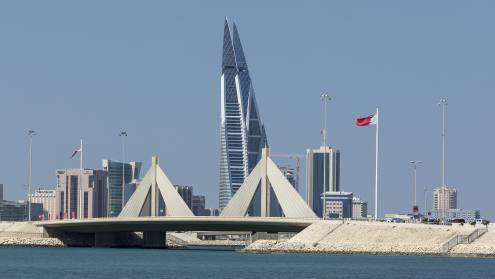The Islamic finance industry tells a story of constant development and growth across the globe. Its growth has far outstripped that of conventional riba or usury (interest)-based finance over the same period. Some argue, however, that this is only because the industry has been growing from a low base by conparison with conventional financial activities.
Editor's choice
This may be true, but take as an example the sukuk market. The European sukuk markets took less than five years to breach the $10bn mark in terms of total outstanding issuance globally, while the Eurobond markets took slightly more than 10 years to breach the same mark.
Even then, some would still argue that it is because the market infrastructure for European sukuk is better today compared with what the Eurobond market started out with. Irrespective of the arguments, it cannot be denied that Islamic finance has been growing significantly over the past 50 years. In fact, it is the fastest growing segment of the modern financial market, recording growth of about 20% to 25% per annum internationally, and it is continuing to gain traction in countries around the world.
Spectacular growth
The growth of the Islamic finance industry has been most spectacular and notable in south-east Asia and the Gulf Co-operation Council countries. Many believe that the Islamic finance industry that we know today was first reintroduced in modern times in the early 1900s in Egypt, but this early attempt failed due to a lack of legislative and regulatory support.
Others believe that the industry as we know it today was first started in the mid-1970s, somewhere in Dubai, when a commercial financial institution with 'Islamic bank' in its name was established. Unfortunately, this is not true; most 'Islamic' financial institutions back then were either not regulated (thus their activities were not related to banking and finance but more of a trading company) or were regulated as a conventional bank (in a way that does not allow them to fully operate in a sharia-compliant manner).
Unbeknown to a lot of people, the birthplace of today’s Islamic finance industry took place in the 1960s in Malaysia; a small country with 28 million people today. Federal legislation saw the Tabung Haji (or the Pilgrimage Fund) established, which led to the creation of the first legislated and formal savings institution in the world carrying out modern financial transactions in a sharia-compliant manner.
This led to the establishment of the world’s second legislated Islamic institution, the Islamic Development Bank in Kuala Lumpur, Malaysia, in 1974, before its headquarters were transferred to Jeddah in Saudi Arabia in 1975, after Saudi Arabia agreed to support the initiative and became its biggest capital provider.
The establishment of Tabung Haji and the Islamic Development Bank eventually led to the enactment of the world’s first specific formal legislation for the Islamic finance industry called the Islamic Banking Act (1983). Both Tabung Haji and the Islamic Development Bank became shareholders of the world’s first regulated and formal Islamic bank, Bank Islam Malaysia Berhad, which operated under the supervision of Malaysia’s central bank, Bank Negara Malaysia.
Legislative activity
Since then, Malaysia has introduced many legislative enactments and amendments. These include the Takaful Act (1984), which saw the establishment of regulated takaful companies; the Banking and Finance Industry Act (1989), which saw the establishment of Islamic window operations under conventional licensees; the Real Property Gains Tax Act (1976), which saw the exemption from real property gains tax in Islamic financial transactions; the Income Tax Act (1967), which saw the exemption of double stamp duty as well as any other tax expenses over and above what is payable under a similar conventional financial transaction; the Securities Industry Act (1983), which saw the birth of the Islamic equity capital market; and the Central Bank Act (2009), which saw the official recognition of a dual-banking industry in the country and the recognition of the Sharia Advisory Council of the central bank as the ultimate authority on sharia in the financial market, thus institutionalising and embedding the Islamic banking industry as a formal feature of the overall financial market of the country.
There are many more legislative enactments and amendments aimed at facilitating effective and efficient Islamic financial activities in Malaysia that are too numerous to list here. No other country’s legislative bodies have come close to doing what Malaysian legislators have done for the Islamic finance industry.
Financial inclusion
Malaysia has also overseen the provision of various regulations by relevant financial bodies to facilitate the undertaking of Islamic financial activities in a manner that would ensure optimum financial inclusion, consumer protection and prudent management of licensed sharia institutions.
Guidelines on financial reporting for Islamic financial institutions, sharia governance frameworks, capital adequacy, Islamic securities, Islamic initial public offerings, Islamic warrants and sharia-compliant stocks, among others, have been introduced and followed by continuous improvements over the years in Malaysia.
These specific guidelines for licensed Islamic financial institutions are applicable over and above all other guidelines issued by regulators, ensuring there is no gap in regulatory supervision and minimising any possible negative impact on the overall financial market in the country. No other country’s financial regulator has come close to Bank Negara Malaysia, the Securities Commission of Malaysia and the Labuan Financial Services Authority in the oversight and supervision of the Islamic finance industry and the licensed financial players, both in onshore and offshore activities.
Global leader
Off the back of Malaysia's comprehensive legislative and regulatory framework for Islamic finance, the country arguably has the most conducive legal environment to hear disputes on Islamic financial transactions anywhere in the world. Sharia is recognised as the law of the land and, with the exception of private and family law, falls under the ambit of the civil court.
Most Islamic financial transactions in the country have been fully tested in court, which helps to provide clarity. The sharia governance framework in Malaysia is fully legislated and regulated as well, allowing for all sharia interpretation and application, regardless of the sharia school of law practised in the industry on a free-market principle, but subject to the legitimate parameters of sharia law as found in the Koran and Hadith (a saying or an act ascribed to the Islamic prophet Muhammad).
All sharia schools of law are applicable, valid and enforceable in the industry, as long as their applications are approved by the country’s relevant financial authority on sharia.
Malaysia has been so effective in promoting and propagating the growth of Islamic finance because it has approached the industry’s development from a purely commercial perspective. Many countries today have some form of legislative and regulatory framework in place for the industry, but they lack the comprehensiveness that exists in Malaysia. Some have enabling legislation for Islamic banking, but nothing for Islamic capital markets. Others have legislation for Islamic capital markets, but nothing for Islamic asset management or banking.
The enigma of Islamic finance is the lack of comprehensive legislation, regulation and a sharia-compliant governance framework in many countries. It is an enigma because after 50 years, Islamic finance has not been properly legislated and regulated in practically all countries but one, and is therefore not fully supported by a conducive legal environment and infrastructure, as well as a rigorous and dynamic sharia regime.
There seems to be significant reluctance on the part of many countries’ legislators and regulators (including those in Islamic countries), to have this framework in place. This has cost Islamic finance its real growth potential and deprived the world of the opportunity to benefit from a more inclusive global economy and the greater economic development that Islamic finance can offer.
Badlisyah Abdul Ghani is executive director and chief executive officer of CIMB Islamic bank.












